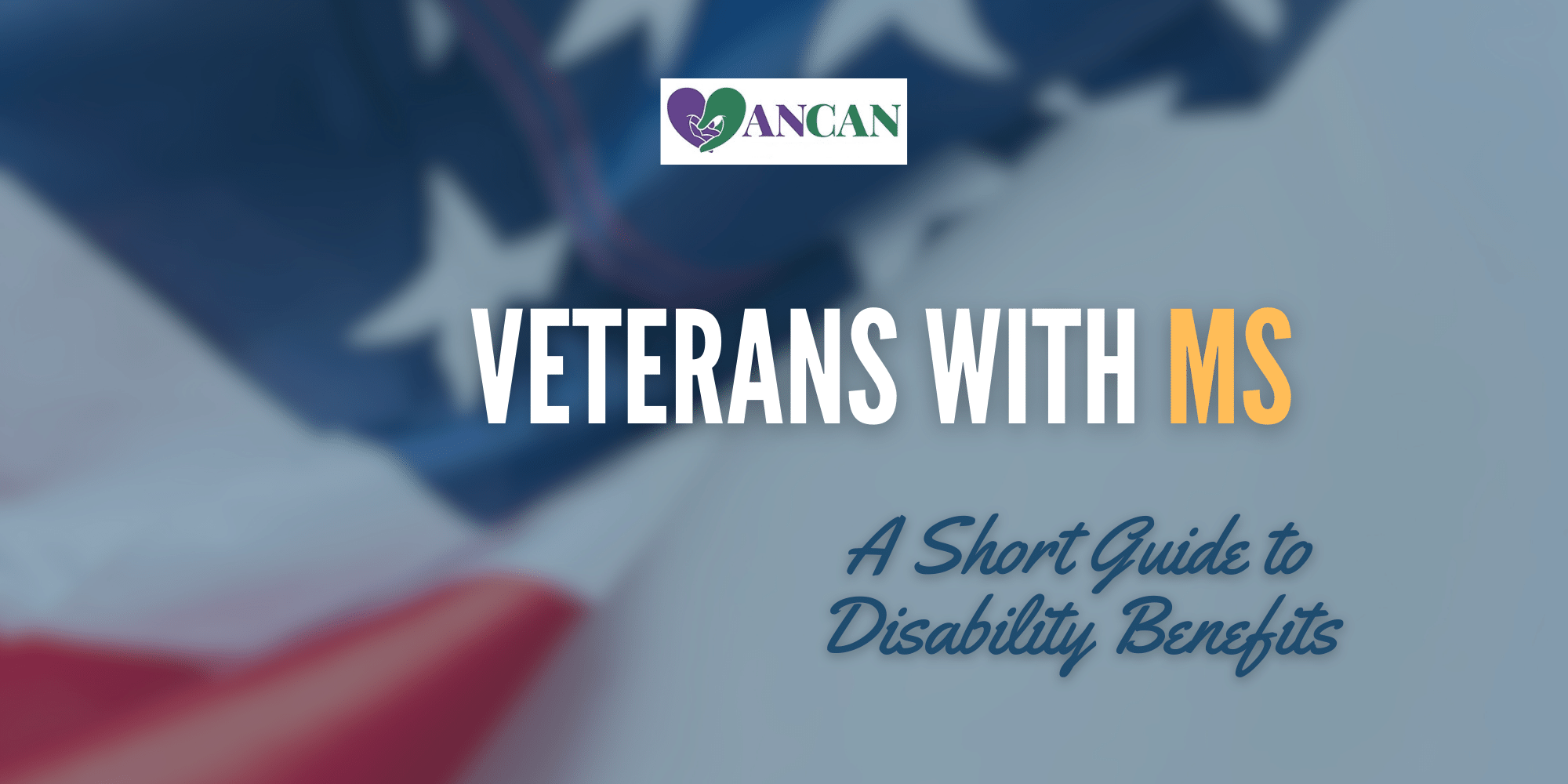So, you have MS. You may also be a Veteran of the United States military. What kinds of benefits and resources are available to those who have served and are now living with this debilitating disease? Here we hope you’ll find our beginner’s guide helpful in your search for benefits and resources.
Having MS and navigating the world of healthcare is dangerously daunting all on its own. Throw in some confusion about VA benefits, and you have a confusion cocktail to contend with (see what I did there?).
Before we dive in, just be warned: there is a plethora of information. Take your time researching, because there are a lot of links in this blog post. Because there’s so much info to take into consideration, we will do our best to update this blog as necessary. Check back regularly for more information as we come across it.
We have to thank Captain James “Jim” Marshall, who is a retired US Air Force Veteran, for bringing up this topic in the first place. Jim regularly moderates our Veteran Support Group, and also attends the High -Risk Prostate Cancer group & Blood Cancer group.
Over this past weekend, Jim struck up a conversation with an Air Force Veteran who has MS. He was surprised to learn that MS is, in fact, not covered under the Agent Orange Act or the PACT Act. MS has not been identified as an illness associated with the substances that these Acts target.
In his conversation, and subsequent research later on, he found that many people (perhaps as high as 60% of people) were denied upgrades to their disability rating. The VA, depending on evidence, will often award up to 30%. However, sometimes specific symptoms will allow for a higher percentage; one of those being chronic fatigue, which gets a 60% rating all on its own.
The official Veterans Affairs benefits website has a page specifically for those who have MS and are seeking resources.
The website states: “The VA provides health care services to Veterans with MS from the time of diagnosis throughout their life, whether or not they have a service-connected or non-service connected status. If an individual had symptoms of MS in the military, or within seven years after honorable discharge, he/she may be eligible for service-connected disability.”
For those who are new to the benefits game:
In fact, there’s an entire webpage that’s full of links and Fact Sheets about your VA benefits.
But oh my goodness, that’s a lot to sift through. Here are a few things on that web page that stand out to us:
Pension Benefit details – At least one of these must be true:
- You’re at least 65 years old, or
- You have a permanent and total disability, or
- You’re a patient in a nursing home for long-term care because of a disability, or
- You’re getting Social Security Disability Insurance or Supplemental Security Income
There’s more to this list, so click that link for info on Pension Benefits
Disability Housing Grants Information –
- Specially Adapted Housing Grant (SAH) for those who own their home, or will own their home, this is a grant that allows adaptive modifications to your home. Can receive up to $109,986 as of 2023
- Special Home Adaptation Grant (SHA) is the same as the above, but with different qualifications. Can receive up to $22,036 as of 2023
- Temporary Residence Adaptation for those who are living in a temporary family member’s home that needs changes in order to meet your adaptive needs. You must meet all the qualifying criteria for one of the two grants above. The amount changes depending on which one you qualify for.
That being said, you may benefit from the help of a VA social worker.
Other good Veterans Service Organizations (VSO) resources are:
Marshall-James@comcast.net
As we mentioned above, this article is just a small portion of info about benefits in the VA system. We will continue to update or even create new blogs as we see fit.
Above all we sincerely thank each of our Veterans for their service. We love and appreciate you!
Don’t forget to check out our MS Peer Support Group, which meets every 2nd and 4th Tuesday of the month
And of course our Veterans Peer Support Group, which meets every 4th Thursday of every month
UPDATE #1 – Jim let me know that Amyotrophic Lateral Sclerosis (ALS) “is a presumptive condition for veterans with 90 days or more of continuously active service in the military. Any veteran with ALS should apply for Disability Compensation.”.
He goes on the state “Looking into justifying MS [and ALS] as Service-Connected, it is not as difficult as it seems. If the Vet was exposed to Hazardous Materials, most of us come across such things even in the states, then present VA thinking has MS service-connected because ‘IT IS AS LIKELY AS NOT’ caused by the exposure.”

